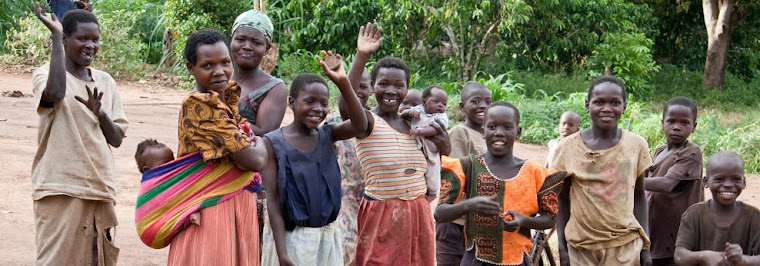After meeting them at Entebbe Airport and spending the night at WhiteCrest's guest lodge, we, accompanied by our driver Abby, traveled through the Equator and six subsequent hours on a scenic drive to Queen Elizabeth National Park in the southwestern region of Uganda. Before we even arrived at Mweya Safari Lodge – our lodging the next two days – we saw elephants (one that wanted to fight us!), monkeys, buffalo, and water bucks. It was an exciting entrance into the park.
Living in the village the past ten months, staying overnight at Mweya Safari Lodge felt completely unfamiliar, bathing in hot, shower water; eating quality, delicious meat; lounging poolside; and enjoying rare luxuries.
On Monday, we went on a morning game drive, spotting elephants, lions, the Ugandan crane (the country’s national bird), among other animals. That afternoon, we took a boat cruise on the Kazinga Channel, catching sightings of crocodiles, lizards, cave buffalo, hippos, and a plethora of different bird species.
We then left Queen Elizabeth National Park Tuesday morning to trek with the chimps at Kibale National Forest. On the drive to Kibale National Forest, not only did we meet Ugandan musician Aziz Azion in Fort Portal, we also ran into families of baboons and monkeys along the road. After arriving at the Chimp’s Nest, our lodging for the night, we went on an evening nature walk, spotting elephant footprints, two tree houses, and multitudes of butterflies, birds, and various types of monkeys.
The following morning, we trekked with the chimps. Chimp trekking was, hands down, one of the coolest and most memorable experiences of my life, coming within feet of these primates and observing their behaviors, mannerisms, and calls (to other chimps). Julie, Fiery, and I were fortunate enough to have our own, guided trek – we weren’t able to make the morning trek, but we were able to leave before the afternoon trek – thus, the chimps were not as fearful of our small group and spent the majority of time on the ground.
The next day, we journeyed 10 hours across country to my site in Kachumbala. I enjoyed sharing my Peace Corps life with Julie and Fiery, and putting a visual face to my words. I took them around Kachumbala, showing them the Mission, the dispensary, the primary/secondary school (we were followed by groups of primary school children pleading for us to take their picture), the trading center, and my room and bathroom; introduced them to my Ugandan friends, students, and work colleagues; climbed a large rock mound/hill – one of many leftover volcanic formations scattered around Kachumbala – directly behind the Mission; ate and drank local Ugandan food (atap/millet bread, emaido/ground nuts, ajon/local brew); and lunched with Rose in Mbale.
Overall, we had a fantastic trip, and I couldn’t have asked for anything more (well, maybe another week). It was both personally- and culturally-rewarding to have some of my muzungu family come to Uganda to meet my Teso family. I’m already counting down the days until I leave for Livingstone, Zambia to see Victoria Falls, and Kenya for animal safaris at the Masai Mara National Refuge and Amboseli National Park, both during the great, annual migration, with Mom and Dad next month.
Here are some of the pictures I took; the complete album is on facebook.
The Equator:


Queen Elizabeth National Park:






















Kibale National Forest/Chimp's Nest:










